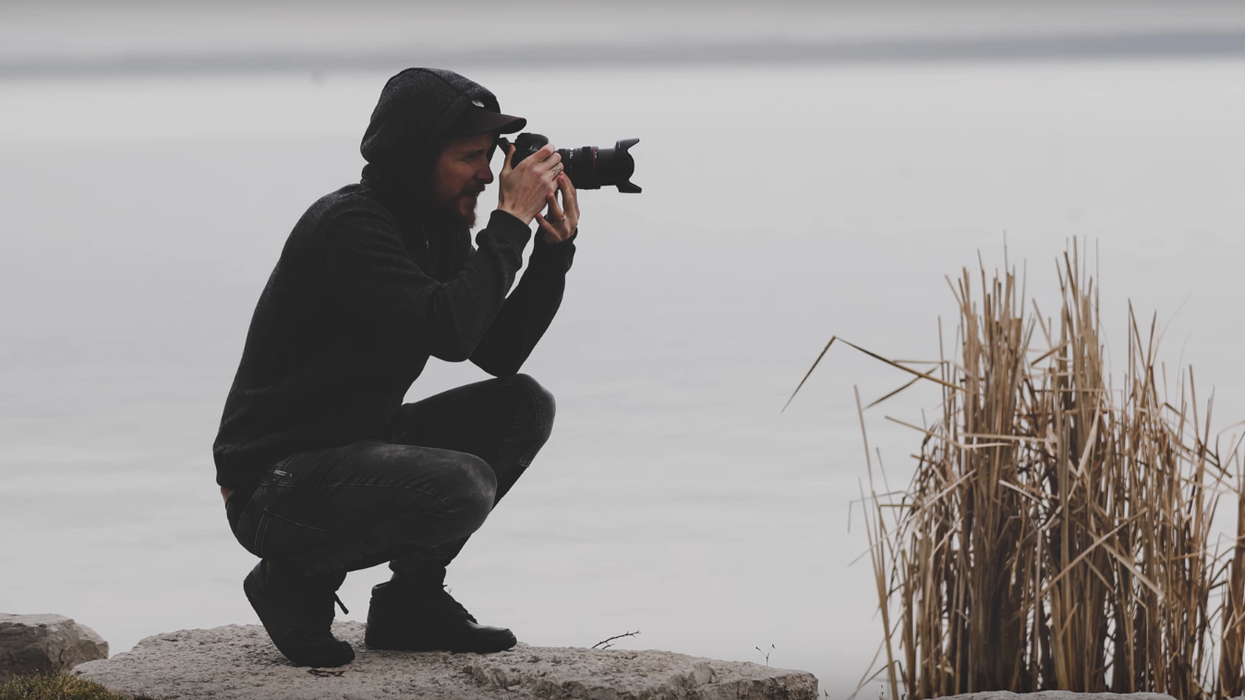4 Issues That Might Be Keeping You from Capturing Better Images
We all want to become better filmmakers, but what are some of the roadblocks that we put in front of ourselves?

Filmmaking is challenging all on its own, but many times we make it a whole lot harder on ourselves. Even if the universe somehow opened all of the doors we needed to become the best we could be, we would find some way to quickly shut them with things like self-doubt and apathy. If you're finding yourself in your own creative rut, you might want to check out this video from filmmaker Peter McKinnon, who discusses four issues many image makers face during their career and how to overcome them.
Comparing your work to other people's work
Kubrick, Hitchcock, Scorsese, Nolan, Aronofsky, Kurosawa—countless filmmakers have made films that inspire, challenge, and entertain us, so it's easy to become a fan. There's nothing wrong with admiring other people's work, but it becomes a problem when the admiration turns into comparison, because instead of allowing yourself to be positively affected by your favorite films and images, you're allowing yourself to be negatively affected by your own. The cure for this might be to just take a vacation from viewing other films and find out what you like about your own.
Shooting on digital
First of all, digital is amazing. It allows us to do things we never thought possible. However, digital has spoiled us. When you can fill up a ton of cheap memory cards with as much footage you want, you tend to not think about what you're shooting as much. When you can see the images you just captured immediately, you're not going to be as careful at ensuring your framing and aesthetic is perfect.
There is beauty in what is limited. The greatest cup of coffee I've ever consumed was purchased with the pennies and dimes from my coin jar a week before payday, and making films with that same desperate searching and attention to what is truly valuable to you will result in some truly great imagery. So, maybe you try film. Maybe you limited yourself to shooting two minutes worth of footage. Whatever your limit is, put it in place and see what you come up with.
Not leaving your comfort zone
I'm a very stubborn individual, especially creatively. I have a way I do things and I don't often like to venture too far away from it for fear of "not being my authentic self," which is V-speak for "I'm a lazy asshole who is too afraid of public and private failure." But trying new things is a great way to grow, and as filmmakers and creatives we should always be seeking that growth.
If you only like to make horror films, make a romantic comedy. If you've only written comedy scripts, write a psychological thriller. If you only ever use the Rule of Thirds to capture images, get rid of the grid and shoot freestyle. Hell, after four years and 1700 articles with No Film School, I write pretty much the same way every time, but to help lead the way in this exodus from the comfort zone, let me just...like...try...
Something TOTALLY new and super kddfjieop ireojeiofj awesome and yes!!!! It's KILLING ME right now to format this sentence like this...and even more to spell someting wrongg, but I've decided I'm too comfortable, and I want to get UNcomfortable. Excellent! Here's the video for "Tha Crossroads" by (duh) Bone Thugs because why not? Here's the lyrics so you can follow along. (You won't be able to.)
Giving yourself too many options
You might be noticing a pattern here with these—giving yourself a safety net can ultimately hinder your creativity. Having drones, gimbals, tons of lenses and cameras and options and stuff is great, but it can also keep you from discovering something new. I know it sounds weird, because—wouldn't having all of those things at your disposal actually promote creativity? Yes—but sometimes—no. Okay, let's make it easier: if you're a person who has every cinematic tool available to you but you're suffering from a creative fog, try limiting yourself to one camera and one lens. Not forever, but just go out and spend a day with your limited kit and see what happens.
What are some creative issues that you think have kept you from being a better filmmaker? Let us know down in the comments.
Source: Peter McKinnon














